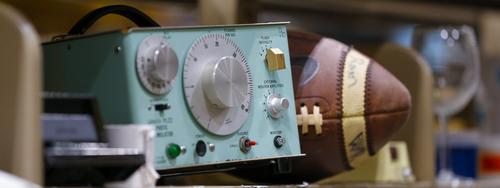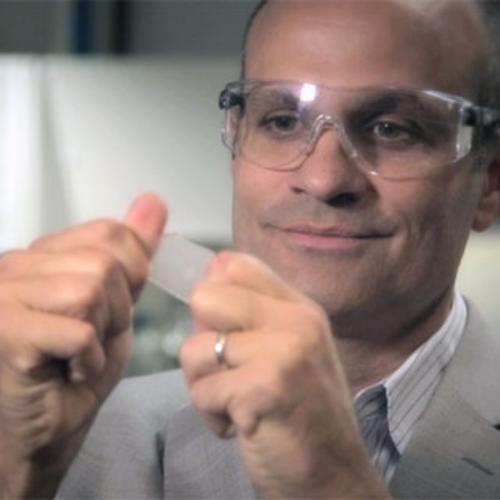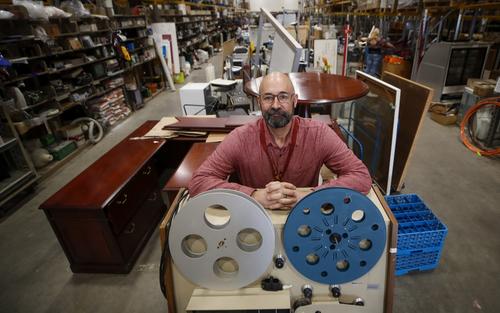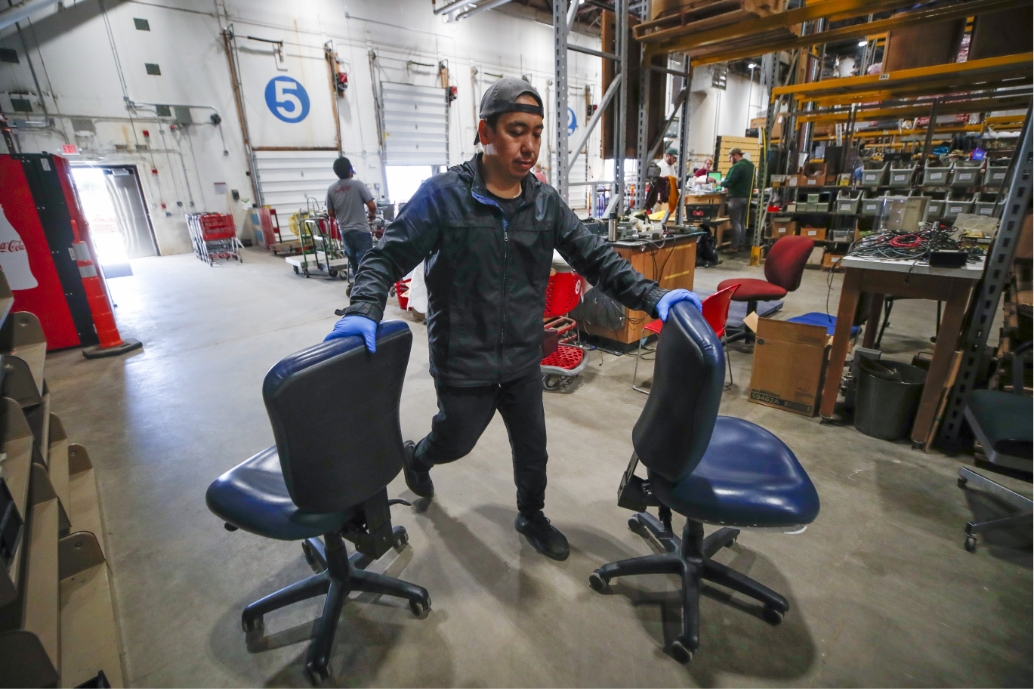
Working toward zero waste
The more than 250 buildings on the Twin Cities campus generate a lot of waste. Fortunately, the University has a waste management program that has been nationally recognized for innovation in its recycling of paper, plastics, cans and bottles, organics, and even futons.
In fact, the U has the highest waste diversion rate in the Big Ten, keeping more than 55 percent of waste from entering landfills. The University's long-term goal is to keep 90 percent of campus waste out of the trash.
One way the University does this is through the innovative ReUse Program, which collects surplus office furniture, electronics, thousands of books, vintage science equipment, and about any other odd thing that might come through a major public research university. ReUse then redistributes items to University departments in need or sells them to the public.
ReUse also runs a once-per-semester “Pack & Give Back Program,” where students can donate items they no longer want or need, letting ReUse sort, sell, or dispose of them properly. And a summer storage program allows students to store their belongings instead of throwing them out at the end of the school year.
Todd Tanner ‘14, a U of M alum with a degree in the sociology of law, criminology, and justice, runs the ReUse Program as part of his role as the U of M’s Zero Waste Program manager.
“Over the last 12 months, we’ve returned about $340,000 in materials to Twin Cities departments,” says Tanner, who also develops programs for keeping recyclables and organics out of landfills. ReUse has sold another $480,000 worth of materials to the public over the same period, he adds.

Research snapshot: Building a better plastic
Plastics are a huge problem in our environment. They’re also central to our lives. That’s why Professor Marc Hillmyer, director of the U of M’s Center for Sustainable Polymers, is working on the next generation of plastics. And thanks to a recent $20 million grant from the National Science Foundation, the center’s work has been turbocharged!
Beyond being popular among University students and departments, the ReUse Program is a hit on social media, with more than 42,000 followers on Facebook. Its popularity could be because you never know what will show up next, or because of its comedic approach to captioning photos of newly arrived items.
For example, a photo of a group of blue chairs reads, “These matching chairs are a thing of blue-ty,” while a heating/cooling grate cover caption jokes, "Oh grate, now we have to sell this." Followers often chime in with clever jokes of their own.
One recent post summed up the program perfectly with, “We sell surplus University of Minnesota property, materials, cool things, not so cool things, and pretty much everything else the University doesn't have a use for.”

Tanner says the strangest thing he’s seen come through ReUse is a truck full of mannequins. “There were legs and arms sticking out everywhere,” he notes.
At the same time, real treasures occasionally make their way through the warehouse.
“The biggest sale [by price] I ever made was a collection of maps that were going to be given away," says Tanner "When I saw them, I knew there would be a market for them. They sold for $40,000, and 90 percent of the profit was shared back to the department that had owned them.”
But Tanner says the mission of ReUse remains serious: diverting trash from landfills, so future generations don’t have to.
“I don't want the University's trash to be somebody else's burden,” he says.
Interested in a visit?
The ReUse Warehouse is open to the public on Thursdays, 8:30 a.m.-5 p.m., and on Saturdays, 10 a.m.-4 p.m.
See how the U of M is creating a sustainable campus by
